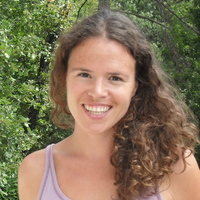
OSTOJIC Ljerka
- Department of Psychology, University of Rijeka, Rijeka, Croatia
- Life Sciences
Recommendation: 1
Reviews: 0
Areas of expertise
Education:
PhD Experimental Psychology, University of Cambridge, UK
MSc Psychology, University of Vienna, Austria
Work:
Assistent professor in Psychology, University of Rijeka, Croatia
Postdoctoral Researcher, University of Cambridge, UK
Recommendation: 1
19 Jun 2024

STAGE 1

Neophobia across social contexts in juvenile Herring gulls
Does social context influence neophobia in juvenile herring gulls (Larus argentatus)?
Recommended by Ljerka Ostojic based on reviews by 2 anonymous reviewersMany animals are increasingly reliant on living close or in urban environments. For them, neophobia – a trait that denotes the fearfulness of novelty (Mettke-Hoffmann, 2022) – may influence how well the species but also individuals of the same species adjust to the (human-induced) changes that characterise these environments (Lowry et al., 2013).
Typically, neophobia in non-human animals is assessed through behavioural tests, most often by measuring the time it takes an individual to approach a novel object or food that is positioned next to a novel object. Increasingly, resarchers are acknowledging that the social context may influence the behaviour of individuals in such situations, and several hypotheses have been proposed to explain a potential influence of social context on neophobic responses.
In the current study, Allaert et al. (2024) will use a within-subject design to test three hypotheses with juvenile herring gulls (Larus argentatus): 1) the risk dilution hypothesis, accoding to which gulls will exhibit smaller neophobic responses when tested in a group than when tested alone, 2) the negotiation hypothesis, according to which gulls will exhibit stronger neophobic responses when tested in a group than when tested alone, and 3) the social conformity hypothesis, according to which those more neophobic individuals will show a smaller neohobic response when tested in a group than when tested alone while less neophobic individuals will exhibit the opposite pattern.
The Stage 1 manuscript was evaluated by two reviewers over two rounds of revisions. During the revisions, the authors clarified the conceptual arguments of the manuscript (including why juveniles are being tested), and edited the methods, including timing of testing, adjustments to the way that the experimental and control conditions will be run, how the planned sample size will be ensured given that at the time of testing, some chicks may be of a different species (this will become evident later on), how relatedness between the chicks will be dealt with, as well as how the behavioural coding will be conducted. Thus, the recommender judged that the manuscript met the Stage 1 criteria and awarded in-principle acceptance (IPA).
URL to the preregistered Stage 1 protocol: https://osf.io/u4b7q
Level of bias control achieved: Level 6. No part of the data or evidence that will be used to answer the research question yet exists and no part will be generated until after IPA.
Level of bias control achieved: Level 6. No part of the data or evidence that will be used to answer the research question yet exists and no part will be generated until after IPA.
List of eligible PCI RR-friendly journals:
References
1. Mettke-Hofmann, C. (2022). Neophobia. In: Vonk, J., Shackelford, T.K. (eds) Encyclopedia of Animal Cognition and Behavior. Springer, Cham. https://doi.org/10.1007/978-3-319-55065-7_908
2. Lowry, H., Lill, A., & Wong, B. B. (2013). Behavioural responses of wildlife to urban environments. Biological Reviews, 88, 537-549. https://doi.org/10.1111/brv.12012
3. Allaert, R., Knoch, S., Braem, S., Debeer, D, Martel, A., Müller, W., Stienen E., Lens, L., & Verbruggen. F. (2024) In principle acceptance of Version 3 by Peer Community in Registered Reports. https://osf.io/u4b7q